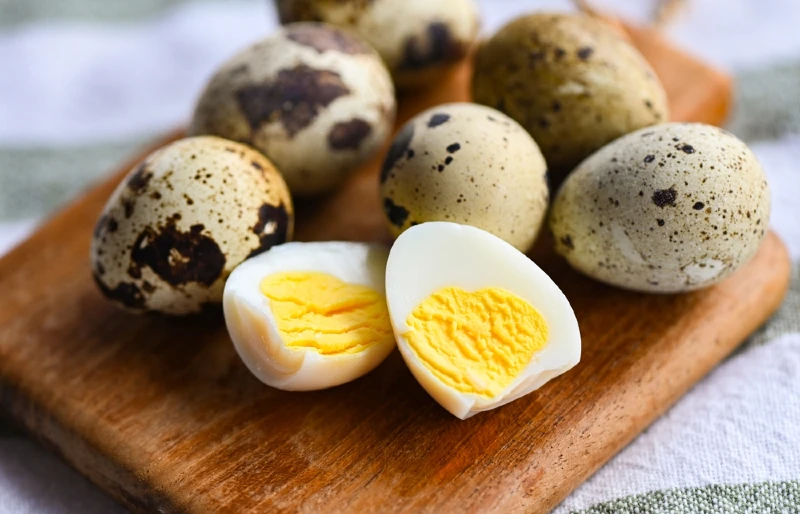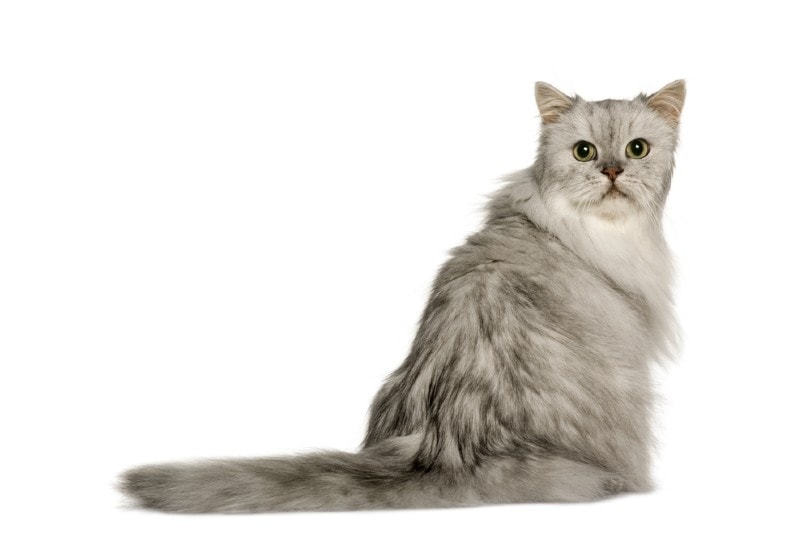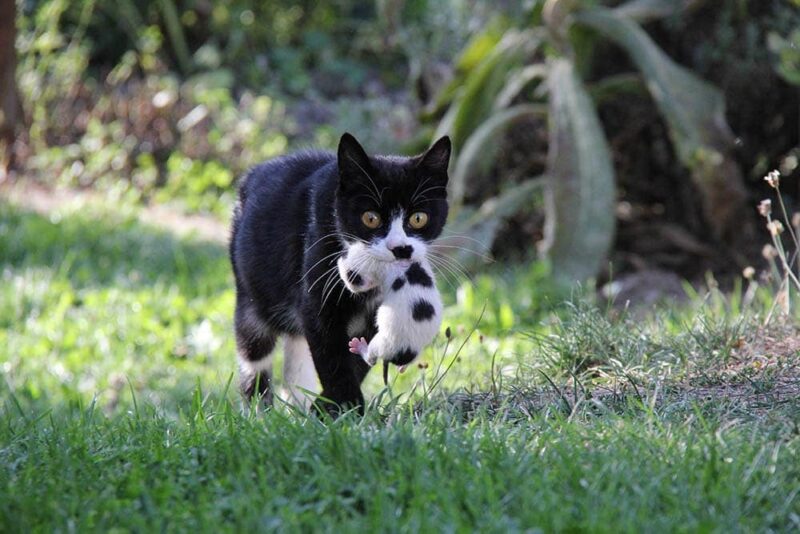Can Cats Drink Bottled Water? Vet-Reviewed Facts & Safety Guide

Updated on
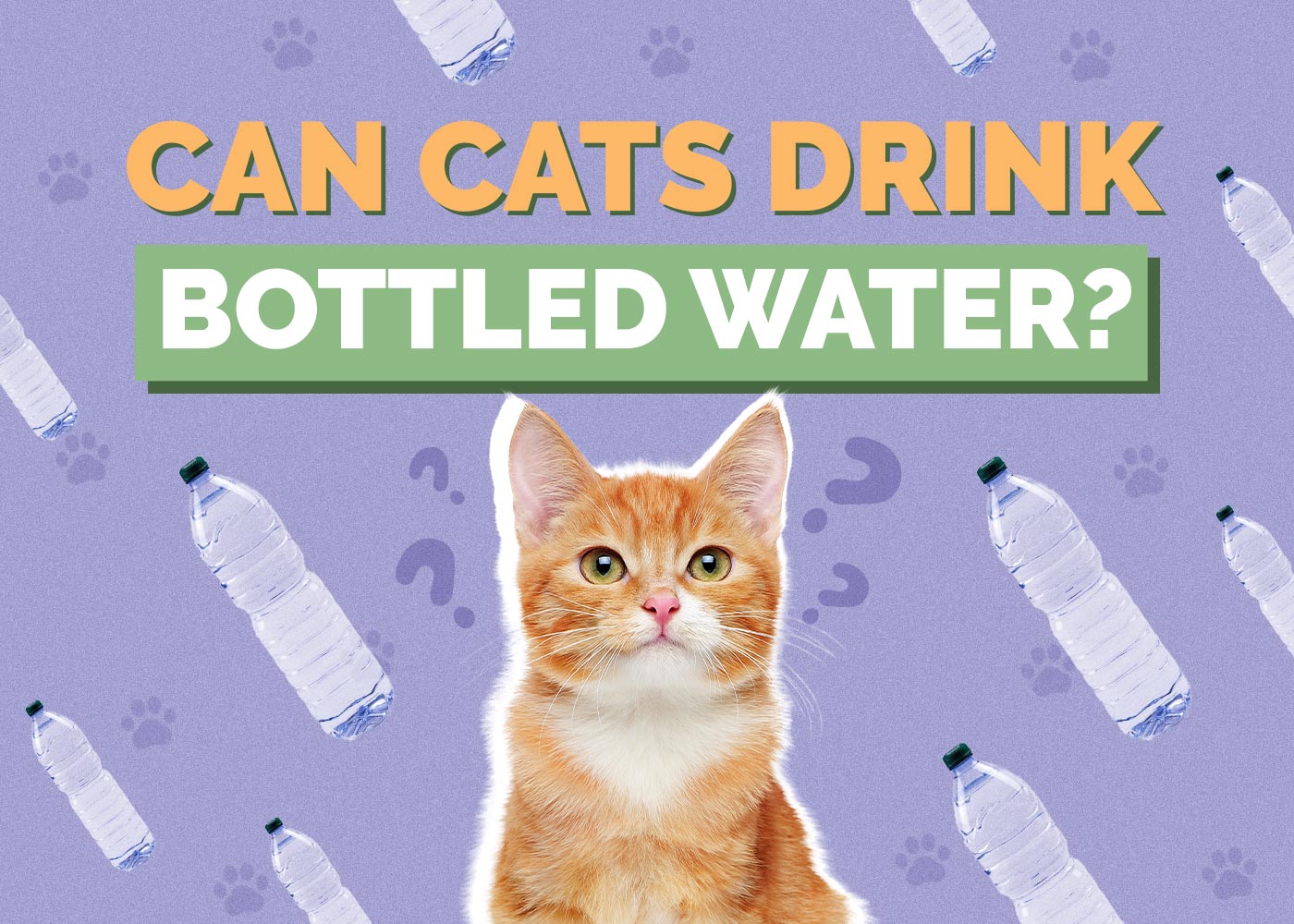
Click to Skip Ahead
Bottled water isn’t a necessity for cats, but you can safely give it to them. But while tap water is generally safe for cats, there may be instances where bottled water could be a better choice. As pet parents, our goal is to provide the best for our furry friends, and this includes ensuring they have access to clean, safe water at all times. Let’s learn more about a cat’s hydration needs and whether or not your cat should drink bottled water.
Understanding Cat Hydration Needs
Cats, like all living beings, need water to survive. However, cats are desert animals by nature and have evolved to get most of their water from food. This is why hydration is such a crucial factor in feline nutrition.
Water plays a vital role in various bodily functions – it is a major component of blood and the tissue that makes up all the organs in the body. Too little often means dehydrated tissues, reduced gastrointestinal motility and less urine output (which is necessary to excrete toxins from the body). A hydrated cat is a healthy cat! Cats should drink roughly half a cup of water per 5 pounds of body weight. Cats that eat more wet food will generally drink less water than cats on a dry kibble.
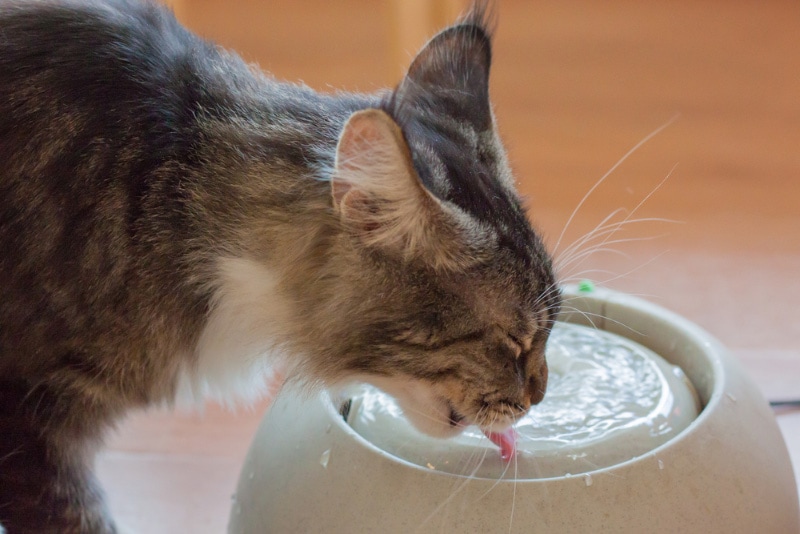
Tap Water vs. Bottled Water for Cats
While tap water is usually safe for cats if it is safe for humans, there are certain factors that could make bottled water a more preferable option. There may include a problem with your drinking water supply in which case you should be notified by your water company. The provision of safe drinking water is regulated by the Environmental Protection Agency (EPA). You should also receive a Consumer Confidence Report, which contains information on their drinking water quality. Contact your local health department if you have specific concerns about your drinking water.
Not all tap water is potable, which means safe to drink. If there is a sign saying the water is not potable then it is not safe for you or your cat to drink.
Bottled Water: Pros and Cons
Bottled water can be beneficial for cats in certain situations, but it also has drawbacks.
Pros of Bottled Water
Bottled water offers several advantages for cat owners. First and foremost, it can be a reliable option when traveling with your cat. Tap water quality can vary greatly from place to place, and bottled water provides a consistent, familiar source of hydration for your pet.
During emergencies such as natural disasters when tap water may be contaminated, bottled water becomes an essential resource. It can ensure your cat has access to safe drinking water until the regular supply is restored.

Cons of Bottled Water
Despite its benefits, bottled water has some downsides. It’s often more expensive than tap water, which can add up over time, especially if you have multiple cats.
Environmentally, bottled water contributes significantly to plastic waste. Plastic bottles take hundreds of years to decompose and often end up in landfills or oceans, causing harm to wildlife and ecosystems.
Flavored bottled water is unnecessary as cat’s do not appear to taste sweet things. They are also unhealthy due to the added sugar they may contain.
Choosing the Right Bottled Water
If you’ve decided that bottled water is best for your cat, choosing the right bottled water involves considering several factors. The safest choice for cats is spring water. Some veterinarians think that distilled water could possibly cause health issues in the long term. It’s a good option if you have concerns about the quality of your tap water.
Avoid carbonated, flavored or vitamin-infused waters. These often contain additives like sugar, artificial sweeteners, or caffeine that are harmful to cats. Even if the bottle claims to be ‘natural’ or ‘healthy,’ it’s best to stick with plain water.

Dehydration in Cats
More important than the type of water that you give your cat is making sure that your cat stays hydrated in the first place. It’s important to recognize the signs of dehydration as well as other ways to encourage hydration if your cat doesn’t drink enough water. It is important to note that dehydration is not always related to water intake. Fluid losses such as vomiting, diarrhea and increased urination are all causes of dehydration related to disease. If your cat is becoming dehydrated frequently or you notice signs of illness, speak to your veterinarian about your concerns.
Signs of Dehydration
Signs of dehydration in cats include lethargy, dry gums, increased heart rate, and loss of appetite. More severe signs can include sunken eyes and dry mouth. If you notice these signs, make sure water is available and consult your vet.

How to Encourage Hydration
Encouraging your cat to drink can sometimes be a challenge due to their natural low thirst drive. Offering wet food, using a water fountain, or adding a splash of tuna juice to their water can encourage hydration. Providing multiple water stations around your home can also help, especially for multi-cat households.
Diet and Hydration
A cat’s diet plays a significant role in their hydration levels. Remember, each cat is unique, and their hydration needs can vary based on factors like age, health status, and lifestyle. Always consult with your vet if you have any concerns about your cat’s hydration or overall health.
Wet Food for Hydration
Wet food, also known as canned, tinned or pouched food, is an excellent source of hydration for cats as it contains a large percentage of water. This high moisture content can significantly contribute to a cat’s daily water intake, making it a great option for ensuring your cat stays adequately hydrated.
This is particularly useful for cats that aren’t big drinkers. Some cats, due to their evolutionary background or personal preference, don’t drink much water directly from a bowl or fountain. For these cats, getting water from their food is crucial to prevent dehydration.
Additionally, the high-water content in wet food can help support kidney function and urinary tract health. It promotes more frequent urination, which can aid in flushing out toxins and reducing the concentration of urine. This can be especially beneficial for cats prone to urinary tract issues such as urinary crystals or cystitis.
Feeding your cat wet food also has other benefits. It tends to be more palatable for many cats, encouraging better appetite and food intake. Plus, it often contains higher protein levels and fewer carbohydrates compared to dry food, making it a good choice for weight management.
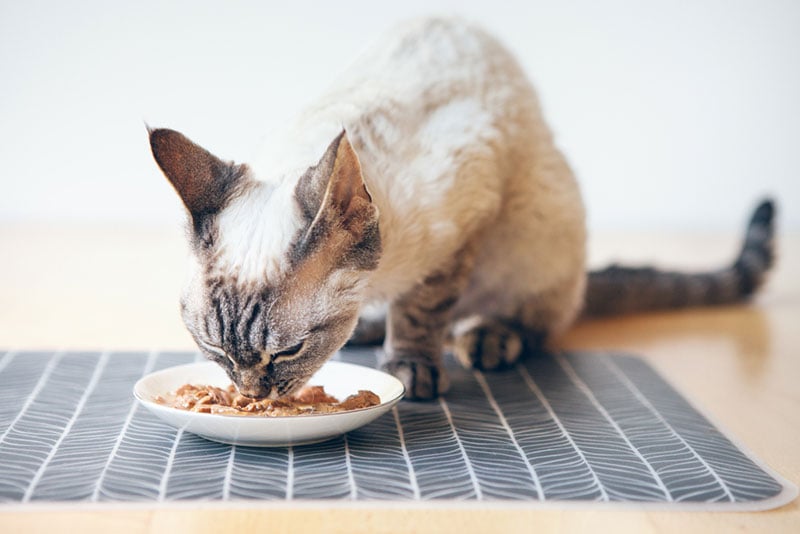
Dry Food and Hydration
Dry food, also known as kibble, is a commonly used diet for cats. However, it doesn’t contain as much water. This low moisture content means that if your cat eats only dry food, they will need to drink more water to stay hydrated.
Keeping fresh water available at all times is a must if you feed your cat exclusively dry food. You might also consider using a cat water fountain, which can encourage more drinking due to some cats seeming to prefer running water.
However, it’s important to note that some cats may not drink enough water even with these measures. This can put them at risk of dehydration, particularly in hot weather or if they are active.
In such cases, you might need to consider strategies to increase their water intake. This can include adding wet food to their diet, soaking their kibble in water before feeding, or even adding a splash of tuna or chicken broth (without onions, garlic, or salt) to their water to make it more enticing.
Monitor your cat’s water intake and watch for signs of dehydration such as lethargy, sunken eyes, and reduced skin elasticity. If you have any concerns about your cat’s hydration status, consult with your vet as your cat may have an underlying illness.
Conclusion
While bottled water isn’t a must for cats, understanding its potential benefits and drawbacks helps us make informed decisions for our furry friends’ well-being. After all, keeping them hydrated is part of ensuring they lead a fulfilling, vibrant life.
In the end, whether you choose to give your cat bottled water or tap water should depend on your specific situation and your cat’s health needs. Always consult with your vet if you have any concerns about your cat’s hydration or overall health.
Featured Image Credit: Tar Pichet, Shutterstock



